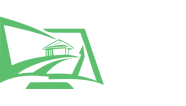Currently Empty: ₹0.00
Education Software and PHP and JS System Script
Course Overview
Module 1: Introduction to Education Software Development
- Understanding the Role of Education Software in Learning
- Overview of PHP and JavaScript for Web Development
- Introduction to System Scripts: Functions, Libraries, and Frameworks
- Setting Up Development Environment: IDEs, Servers, and Database Management Systems
Module 2: Building User Authentication and Authorization
- User Authentication: Registration, Login, and Logout Functionality
- User Roles and Permissions: Admin, Instructor, Student
- Implementing Access Control: Role-Based Authorization
- Security Best Practices: Password Hashing, CSRF Protection, Session Management
Module 3: Managing Courses and Curriculum
- Designing Database Schema for Course Management
- CRUD Operations for Courses: Creating, Reading, Updating, Deleting
- Implementing Course Categories and Tags for Organization
- Enrolling Students in Courses and Tracking Progress
Module 4: Creating Interactive Lessons and Assignments
- Designing User Interfaces for Lessons and Assignments
- Embedding Multimedia Content: Videos, Slideshows, Interactive Quizzes
- Tracking Student Progress and Performance
- Providing Feedback and Grading Assignments
Module 5: Communication and Collaboration Tools
- Implementing Discussion Forums for Student Interaction
- Real-Time Chat and Messaging Features
- Collaboration Spaces for Group Projects and Study Groups
- Notifications and Alerts for Important Updates
Module 6: Assessment and Evaluation
- Designing and Creating Online Assessments: Quizzes, Tests, Exams
- Grading and Scoring Mechanisms: Automated Grading, Manual Grading
- Generating Reports and Analytics on Student Performance
- Adaptive Learning Systems for Personalized Feedback
Module 7: Integration with Learning Management Systems (LMS)
- Integrating Education Software with Existing LMS Platforms
- Single Sign-On (SSO) Integration for Seamless User Experience
- Data Synchronization and Transfer between Systems
- Customizing and Extending LMS Functionality with PHP and JavaScript
Module 8: Accessibility and Usability
- Designing Accessible User Interfaces: Keyboard Navigation, Screen Reader Compatibility
- Responsive Design for Mobile-Friendly Experience
- Usability Testing and User Experience (UX) Optimization
- Implementing Internationalization (i18n) and Localization for Multilingual Support
Module 9: Security and Data Privacy
- Secure Coding Practices: Input Validation, Output Escaping
- Preventing SQL Injection, Cross-Site Scripting (XSS), and Other Common Vulnerabilities
- Data Encryption and Secure Transmission over HTTPS
- Compliance with Data Protection Regulations (e.g., GDPR, CCPA)
Module 10: Deployment and Maintenance
- Deploying Education Software to Production Servers
- Monitoring and Logging for Performance Optimization and Issue Tracking
- Software Updates and Maintenance: Patch Management, Version Control
- Providing Technical Support and Troubleshooting for Users
Course Duration: The course is designed to be completed over a period of 10-12 weeks, with approximately 6-8 hours of study per week.
Prerequisites: Basic understanding of web development concepts, including HTML, CSS, and basic programming principles, is recommended. Familiarity with PHP and JavaScript is beneficial but not required.
Course Format: The course is delivered through a combination of video tutorials, hands-on coding exercises, projects, quizzes, and discussions. Students will have access to downloadable resources, code samples, and supplementary materials to enhance their learning experience.
Certification: Upon successful completion of the course requirements, including quizzes, assignments, and the final project, participants will receive a certificate of completion in Education Software Development with PHP and JavaScript from Nithya Edu.


